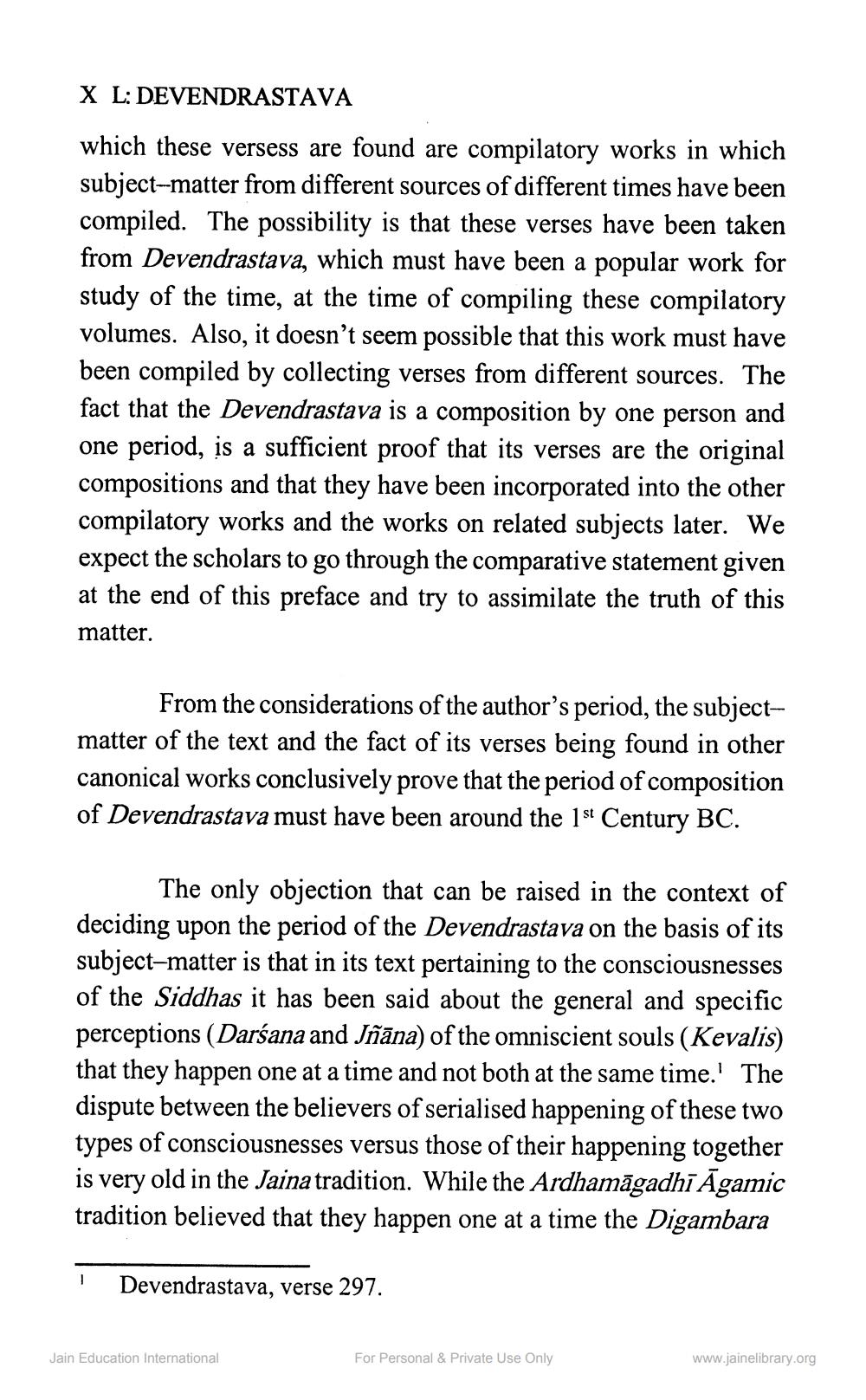________________
X L: DEVENDRASTAVA
which these versess are found are compilatory works in which subject-matter from different sources of different times have been compiled. The possibility is that these verses have been taken from Devendrastava, which must have been a popular work for study of the time, at the time of compiling these compilatory volumes. Also, it doesn't seem possible that this work must have been compiled by collecting verses from different sources. The fact that the Devendrastava is a composition by one person and one period, is a sufficient proof that its verses are the original compositions and that they have been incorporated into the other compilatory works and the works on related subjects later. We expect the scholars to go through the comparative statement given at the end of this preface and try to assimilate the truth of this matter.
From the considerations of the author's period, the subjectmatter of the text and the fact of its verses being found in other canonical works conclusively prove that the period of composition of Devendrastava must have been around the 1st Century BC.
The only objection that can be raised in the context of deciding upon the period of the Devendrastava on the basis of its subject matter is that in its text pertaining to the consciousnesses of the Siddhas it has been said about the general and specific perceptions (Darśana and Jñāna) of the omniscient souls (Kevalis) that they happen one at a time and not both at the same time. The dispute between the believers of serialised happening of these two types of consciousnesses versus those of their happening together is very old in the Jaina tradition. While the Ardhamāgadhi Āgamic tradition believed that they happen one at a time the Digambara
|
Devendrastava, verse 297.
Jain Education International
For Personal & Private Use Only
www.jainelibrary.org




